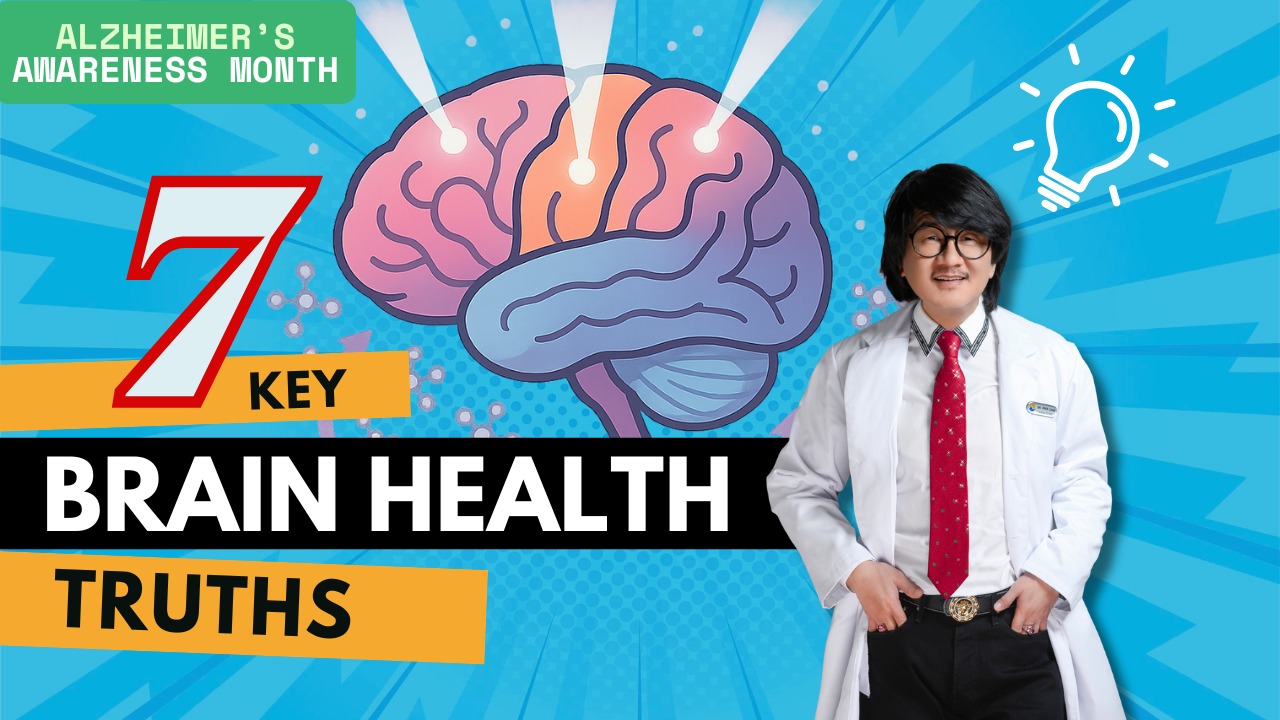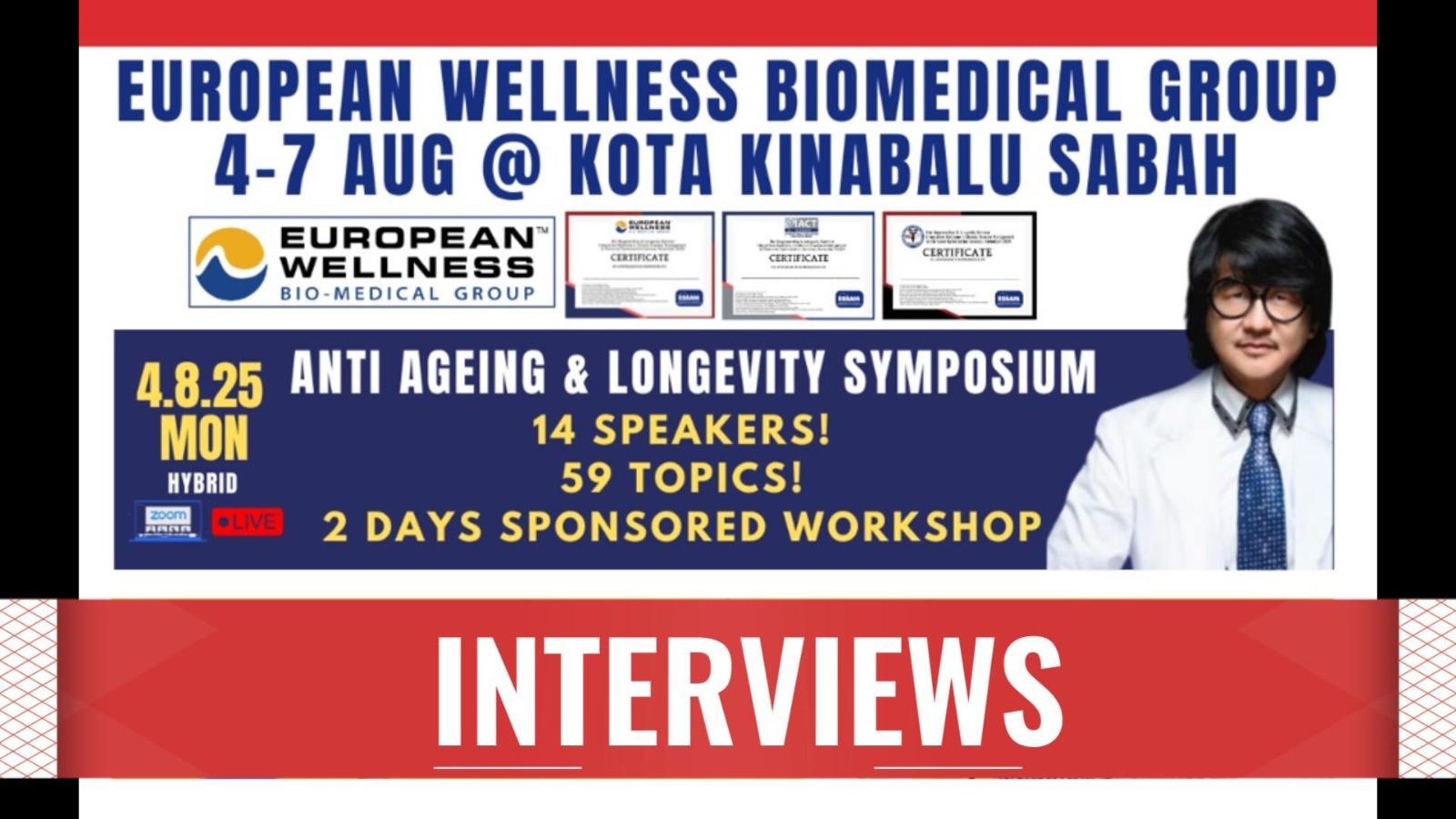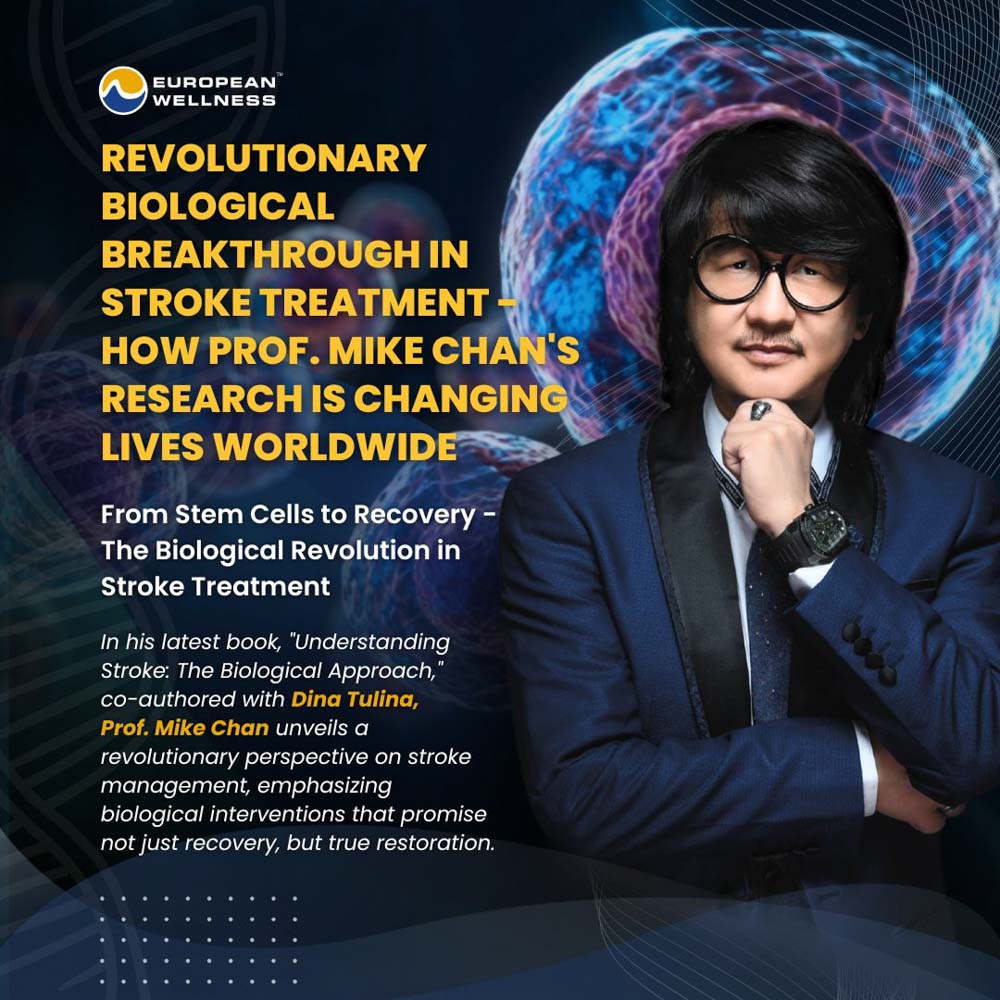KOTA KINABALU, Malaysia (Aug 4-7, 2025) — At a time when regenerative medicine is reshaping…
JUNE HIGHLIGHTS: 7 Key Brain Health Truths Amid Alzheimer’s Awareness Month

LONDON, June 12, 2025 – As Alzheimer’s and Brain Awareness Month continues, global experts are spotlighting scientific insights and prevention strategies that could transform how individuals understand—and protect—their cognitive well-being.
A recent feature by Meghan Rabbitt in Maria Shriver’s Sunday Paper outlines “7 Truths” about brain health that remain widely overlooked despite mounting research. The insights touch on gender risk, lifestyle prevention, and how the brain continues to adapt and regenerate well into midlife.
“These observations align strongly with what we apply at the European Wellness centers” said Prof. Mike Chan, Chairman of European Wellness Biomedical Group and a leading figure in bioregenerative medicine. “The brain doesn’t simply deteriorate with age—it has untapped potential for repair and renewal when approached with the right tools.”
-
Women face a higher risk of Alzheimer’s
Two-thirds of Alzheimer’s cases occur in women, a fact still unfamiliar to most. Hormonal shifts during menopause play a key role in this disparity. “Midlife is the critical period for early intervention,” Prof. Chan said. “We support cognitive resilience by restoring hormone-brain balance using adrenal and hypothalamic precursor stem cells.”
-
Up to 40% of dementia cases may be preventable
A healthy diet, regular exercise, quality sleep, and avoidance of smoking and alcohol can significantly reduce cognitive risk. “Lifestyle is foundational,” Prof. Chan agreed, “but as we age, we also need cellular replenishment. That’s where brain-specific precursor stem cells therapy come in—to repair what time breaks down.”
-
Hearing loss is a major, modifiable risk factor
Hearing impairments, if left unaddressed, can double or even quintuple dementia risk. Regenerative therapy may help by protecting neural pathways. “We infuse targeted brain-specific precursor stem cells to support the auditory system and temporal lobes, helping preserve sensory-cognitive integration,” said Prof. Chan.
-
Menopause physically reshapes the brain
Research shows that estrogen receptors in the brain increase during menopause, impacting cognition. “The brain is incredibly responsive to hormonal shifts,” said Prof. Chan. “Our protocols help restore endocrine harmony with adrenal and ovarian cell therapies, stabilizing cognition and mood.”
-
Midlife can bring cognitive gains, especially for women
Far from a time of inevitable decline, many women experience sharpened focus and clearer thinking during midlife. “We encourage patients to seize this phase by enhancing neuroplasticity through frontal lobe and cortex-specific precursor stem cell therapy, reinforcing these natural strengths,” Prof. Chan noted.
-
Caregivers remain overlooked and overwhelmed
The emotional burden on caregivers often goes unnoticed. Prof. Chan emphasized that family members also need support. “Regenerative outcomes that improve function don’t just help patients—they lift emotional weight from caregivers too. It’s a holistic benefit.”
-
Food and lifestyle can treat anxiety
Dr. Uma Naidoo’s insights on nutritional psychiatry underscore how food, breathwork, and exercise can replace pharmacological anxiety treatments. Prof. Chan supports this approach. “We combine nutritional strategies with anti-inflammatory cellular infusions—particularly placenta-derived cytokines—to support mood and mental clarity naturally.”
With more than 55 million people living with dementia worldwide and numbers rising sharply, June’s awareness campaign is more than symbolic—it’s essential. The World Health Organization (WHO) has warned that the global burden of Alzheimer’s could triple by 2050 without large-scale action.
“While traditional medicine focuses on symptom control, our work targets the pathology itself,” said Prof. Chan. “Every one of the 400+ precursor stem cells we use has a specific role. For Alzheimer’s, we go straight to the source—repairing the affected brain regions.”
To learn more about European Wellness protocols for brain aging and cognitive disorders, visit european-wellness.eu.
Follow European Wellness Academy:


